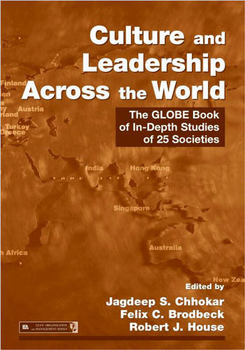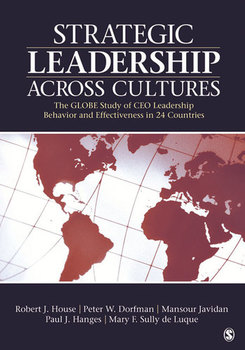Latin Europe
France, Israel, Italy, Portugal, Spain, Switzerland
The GLOBE Latin Europe cluster consists of France, Italy, Spain, Portugal, Switzerland (French-speaking), and Israel. The scores of this cluster are noteworthy for their medium scores on most cultural practices dimensions with the exception of high scores on Power Distance and relatively low scores on Humane Orientation. Power distance is the degree to which the community accepts and endorses authority, power differentials, status privileges, and social inequality. Members of these societies do not expect power to be distributed evenly among its citizens nor would they reward individuals for being kind and generous to others. The ratings of Gender Egalitarianism obtained the lowest score for this cluster but it is about average for other clusters—all clusters are at least somewhat male-dominated. All the other dimensions fall in the mid- range but Future Orientation and In-Group and Institutional Collectivism are noteworthy for being lower than the average of other clusters. This cluster scored higher on In-Group Collectivism than Institutional Collectivism, indicating significant family and group orientation but not particularly encouraging a collective distribution of resources. In short, the societies in this cluster are somewhat male-dominated, not particularly humane-oriented and experience an unequal distribution of power and status among citizens.
As for societal values (what the society believes should be), the Latin Europe cluster ranks high on Performance Orientation, In-Group Collectivism, Future Orientation, and Humane Orientation. Thus, they desire to have significant increases in performance and future orientation, to be more humane, and to have more gender equality. The very low scoring Power Distance values, in sharp contrast to its societal cultural practice, are an indication that they prefer to have drastic reductions in power differences, stratification, and status differentiation. Interestingly, there seems to be a relatively small difference between cultural practice and societal values scores on Uncertainty Avoidance and Assertiveness dimensions which indicates that the societies in this cluster find the current structure, rules, norms, and the level of assertiveness about relationships acceptable. On the other hand, these societies desire a modest increase in In-Group and Institutional Collectivism, suggesting that they want more loyalty and cohesiveness in their organizations and families, and desire more practices that reward and give support to the collective distribution of resources and collective action.
The leadership dimensions viewed as most contributing to outstanding leadership in this cluster include Charismatic/Value- Based, followed by Team Oriented and Participative Leadership. These scores, however, are about average of all the clusters. The Charismatic attributes that are endorsed include a realistic vision, high performance orientation, integrity, and decisiveness. These societies also value team oriented leaders whose characteristics include developing outstanding teams by using their administrative and interpersonal skills to create cohesive working groups. While participative leadership is valued, its score is about average among the clusters. Among the other leadership dimensions, Humane- Oriented Leadership is viewed as slightly positive but is tied for lowest of all clusters. Autonomous Leadership is viewed as slightly negative and is more negative than most other clusters. Self-Protective Leadership is also viewed negatively indicating that these societies reject leaders who are self-centered and status conscious. Overall, an outstanding leader in the Latin European cluster would be a person who is moderately charismatic, team-oriented and participative but not particularly caring and giving or acting in an independent manner.
Culture Visualization
Leadership Visualization
GLOBE Books
The GLOBE books represent results from a twenty-year research program investigating the influence of culture on societal and organizational effectiveness. Our latest book showcases our examination of strategic leadership effectiveness for top-level management based on data from more than 1,000 CEOs and over 6,000 top-level managers in 24 countries.
View



